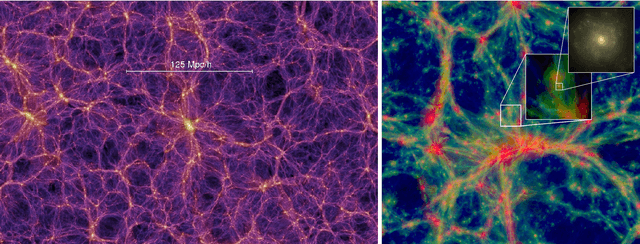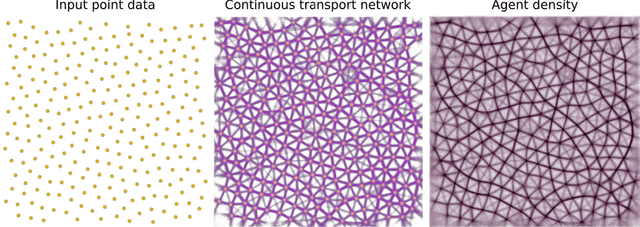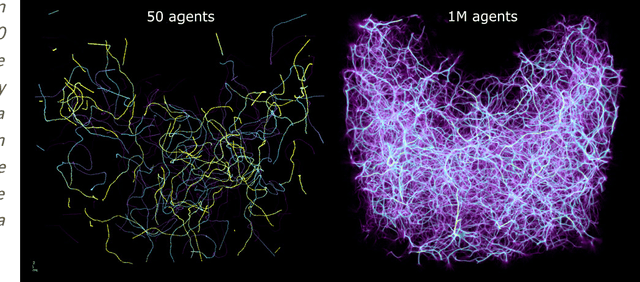Joseph N. Burchett
Monte Carlo Physarum Machine: Characteristics of Pattern Formation in Continuous Stochastic Transport Networks
Apr 04, 2022



Abstract:We present Monte Carlo Physarum Machine: a computational model suitable for reconstructing continuous transport networks from sparse 2D and 3D data. MCPM is a probabilistic generalization of Jones's 2010 agent-based model for simulating the growth of Physarum polycephalum slime mold. We compare MCPM to Jones's work on theoretical grounds, and describe a task-specific variant designed for reconstructing the large-scale distribution of gas and dark matter in the Universe known as the Cosmic web. To analyze the new model, we first explore MCPM's self-patterning behavior, showing a wide range of continuous network-like morphologies -- called "polyphorms" -- that the model produces from geometrically intuitive parameters. Applying MCPM to both simulated and observational cosmological datasets, we then evaluate its ability to produce consistent 3D density maps of the Cosmic web. Finally, we examine other possible tasks where MCPM could be useful, along with several examples of fitting to domain-specific data as proofs of concept.
 Add to Chrome
Add to Chrome Add to Firefox
Add to Firefox Add to Edge
Add to Edge